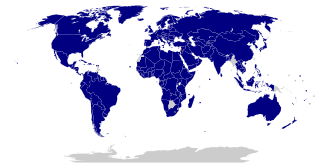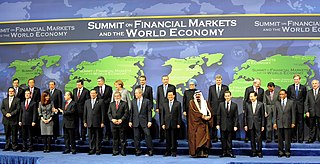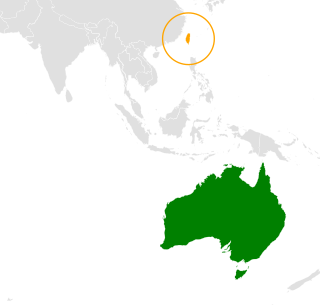
Kim Richard Nossal, PhD, FRSC, is a professor emeritus in the Department of Political Studies and the Centre for International and Defence Policy, Queen's University in Kingston, Ontario, Canada.

Kim Richard Nossal, PhD, FRSC, is a professor emeritus in the Department of Political Studies and the Centre for International and Defence Policy, Queen's University in Kingston, Ontario, Canada.
Born in London, England, Nossal was educated in Melbourne, Beijing, Toronto, and Hong Kong. He attended the University of Toronto, receiving his BA, MA, and PhD in 1977. In 1976 he joined the Department of Political Science at McMaster University in Hamilton, Ontario, where he taught international relations and Canadian foreign policy for 25 years, serving as chair of the Department from 1989 to 1990 and from 1992 to 1996 respectively. In 2001, he was appointed as head of the Department of Political Studies at Queen's, a position he held until 2009. He was the Sir Edward Peacock Professor of International Relations from 2008 to 2013. From January 2011 to December 2013 he was the director of the Centre for International and Defence Policy in the School of Policy Studies. From July 2013 until June 2015, he was the executive director of the School of Policy Studies. In 2018-2019 he served as director of the Centre for International and Defence Policy. He retired from Queen's University in 2020. [1]
Nossal served as editor of International Journal (1992–1997), as the North American editor of Global Change, Peace & Security and served on the editorial boards of several scholarly journals, including Études Internationales , Revista Méxicana de Estudios Canadienses , and Civil Wars . He served as president of the Australian and New Zealand Studies Association of North America between 1999 and 2001, and president of the Canadian Political Science Association from 2005 to 2006. [2] In 2000 Nossal was appointed by the Minister of National Defence to the academic selection committee of the Security and Defence Forum, the academic outreach program of the Department of National Defence; he was appointed the chair of the committee in 2005, remaining in this position until 2012, when DND terminated the program. In 2017, Nossal was awarded an honorary doctorate by the Royal Military College of Canada. [3] In 2019, he was elected as a fellow of the Royal Society of Canada.
Nossal has authored several publications about Australian, Canadian and international politics in Foreign Affairs , [4] The Interpreter, [5] and the E-International Relations . [6]

The foreign policy of Lebanon reflects its geographic location, the composition of its population, and its reliance on commerce and trade. Until 2005, Lebanon's foreign policy had been heavily influenced by Syria. The framework for relations was first codified in May 1991, when Lebanon and Syria signed a treaty of mutual cooperation. This treaty came out of the Taif Agreement, which stipulated that "Lebanon is linked to Syria by distinctive ties deriving strength from kinship, history, and common interests." The Lebanese-Syria treaty calls for "coordination and cooperation between the two countries" that would serve the "interests of the two countries within the framework of sovereignty and independence of each." Numerous agreements on political, economic, and security. After Syria's military withdrawal in 2005, Lebanon's foreign policy charted a more independent course.

Foreign relations of Australia are influenced by its position as a leading trading nation and as a significant donor of humanitarian aid. Australia's foreign policy is guided by a commitment to multilateralism and regionalism, as well as to build strong bilateral relations with its allies. Key concerns include free trade, terrorism, refugees, economic co-operation with Asia and stability in the Indo-Pacific. Australia is active in the United Nations and the Commonwealth of Nations. Given its history of starting and supporting important regional and global initiatives, it has been described as a regional middle power par excellence.

International relations (IR) or Global Governance are the interactions between sovereign states. The scientific study of those interactions is called international studies, or international affairs. In a broader sense, it concerns all activities between states—such as war, diplomacy, trade, and foreign policy—as well as relations with and among other international actors, such as intergovernmental organisations (IGOs), international nongovernmental organisations (INGOs), international legal bodies, and multinational corporations (MNCs). There are several schools of thought within IR, of which the most prominent are realism, liberalism, and constructivism.

John Paul Manley is a Canadian lawyer, businessman, and politician who served as the eighth deputy prime minister of Canada from 2002 to 2003. He served as Liberal Member of Parliament for Ottawa South from 1988 to 2004. From January 2010 to October 2018 he was president and CEO of the Business Council of Canada. He is currently the Chairman of the Canadian Imperial Bank of Commerce (CIBC) and serves on the advisory board of the Leaders' Debates Commission.

The foreign relations of Canada are Canada's relations with other governments and nations. Canada is recognized as a middle power for its role in international affairs with a tendency to pursue multilateral solutions. Canada's foreign policy based on international peacekeeping and security is carried out through coalitions and international organizations, and through the work of numerous federal institutions. Canada's peacekeeping role during the 20th century has played a major role in its global image. The strategy of the Canadian government's foreign aid policy reflects an emphasis to meet the Millennium Development Goals, while also providing assistance in response to foreign humanitarian crises.

In international relations, a middle power is a sovereign state that is not a great power nor a superpower, but still has large or moderate influence and international recognition.

William John Lawrence Wallace, Baron Wallace of Saltaire,, is a British academic, writer, and Liberal Democrat politician, who was a Lord in Waiting from 2010 to 2015.

Chatham House, also known as The Royal Institute of International Affairs, is an independent policy institute headquartered in London. Its stated mission is to provide commentary on world events and offer solutions to global challenges. It is the originator of the Chatham House Rule.
George Norman Hillmer is a Canadian historian and is among the leading scholars on Canada–US relations.
Foreign policy analysis (FPA) is a branch of political science dealing with theory development and empirical study regarding the processes and outcomes of foreign policy.

Giles Scott-Smith is Dutch-British academic. He is a professor of transnational relations and new diplomatic history at Leiden University and serves as the dean of Leiden University College The Hague.
The diplomatic history of Australia refers to the historical events surrounding Australian foreign relations. Following the global change in the dynamics of international state of affairs in the 20th century, this saw a transition within Australia's diplomatic situation to broaden outside of exclusively commonwealth and western European nations. Its core relationship was with Great Britain until 1941, and with the United States and New Zealand since then as represented by ANZUS. In the 21st century trade has soared with China. However relations have cycled back and forth from friendly to strained. For recent relations see also Foreign relations of Australia.
Olajide Aluko was a distinguished and renowned academic Nigerian scholar who in October 1977 became the first Professor of International Relations in Sub-Sahara Africa. He is also known as the Doyen of International Relations. He was a prolific writer and conference speaker who had written several books and journals which shaped international politics and foreign policies in Africa.
Paradiplomacy is the involvement of non-central governments in international relations. The phenomenon includes a variety of pratices, from town twinning to transational networking, decentralized cooperation, and advocacy in international summits. Following the movement of globalisation, non-central governments have been playing increasingly influential roles on the global scene, connecting across national borders and developing their own foreign policies. Regions, states, provinces and cities seek their way to promote cooperation, cultural exchanges, trade and partnership, in a large diversity of ways and objectives depending on their decentralization, cultural, and socio-economical contexts. This trend raises new interesting questions concerning public international law and opens a debate on the global governance regime, and the evolution of the nation-led system that has provided the grounds for the international political order in the last centuries.

The Graduate Institute of International and Development Studies, or the Geneva Graduate Institute, abbreviated IHEID, is a government-accredited postgraduate institution of higher education located in Geneva, Switzerland. The current Geneva Graduate Institute was formed by a merger between the Graduate Institute of International Studies and the Graduate Institute of Development Studies in 2008.

Relations between the Commonwealth of Australia and the Republic of China, formerly the Qing dynasty, date back to 1909. Since 1972, the political status and legal status of Taiwan have been contentious issues. Australia and Taiwan share partnership in the inter-governmental Global Cooperation and Training Framework (GCTF) activities.
Hugh White is an Emeritus Professor of Strategic Studies at the Strategic and Defence Studies Centre of the Australian National University in Canberra, Australia, long-time defence and intelligence analyst, and author who has published works on military strategy and international relations. He was Deputy Secretary for Strategy and Intelligence in the Australian Department of Defence from 1995 until 2000 and was the inaugural Director of the Australian Strategic Policy Institute (ASPI). His 2019 book How to Defend Australia attracted national attention after raising the proposition of re-examining the proposition of an independently nuclear-armed Australia.

Coral Mary Bell was an Australian academic, who wrote extensively about international relations and power politics.
The foreign policies of Canada and its predecessor colonies were under British control until the 20th century. This included wars with the United States in 1775-1783 and 1812–1815. Economic ties with the U.S. were always close. Political tensions arose in the 19th century from anti-British feeling in the U.S. in the 1860s. Boundary issues caused diplomatic disputes resolved in the 1840s over the Maine boundary. and early 1900s, in the early 20th century over the Alaska boundary. There is ongoing discussion regarding the Arctic. Relations have been very friendly with the U.S. in the 20th and 21st centuries.